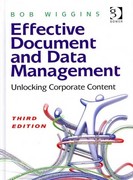Question
Alex Piechowski, plant manager for a Minnesota North Waters Appliance Corporation refrigerator plant, just received his instructions from the vice president for manufacturing. He was
Alex Piechowski, plant manager for a Minnesota North Waters Appliance Corporation refrigerator plant, just received his instructions from the vice president for manufacturing. He was to hire 40 more temporary workers through Twin Cities Staffing, the local labor agency that North Waters used. Alex already knew from past experience that most, if not all, of the new hires available to work on the assembly line would be Muslim Somali refugees, people who had immigrated to Minnesota from their war-torn native country en masse over the past 15 years.
North Waters, like all appliance manufacturers, was trying to survive in a highly competitive, mature industry. Appliance companies were competing mainly on price. The entrance of large chains such as Best Buy and Home Depot only intensified the price wars, not to mention that consumers could easily do comparison shopping before leaving home by logging on to the Internet. The pressure to keep production costs low was considerable.
That's where the Somali workers came in. In an effort to keep labor costs low, North Waters was relying to a greater extent on temporary workers rather than increasing the ranks of its permanent employees. Alex was quite pleased with the Somalis already at work on the assembly line. Although few in number, they were responsible, hardworking, and willing to work for the wages that he could afford to pay.
This was the first time Alex, a son of Polish immigrants, had ever come into contact with Muslims, but matters had gone well so far. Alex had established a good working relationship with the Somalis' spokesperson, Halima Adan, who explained that unlike most Western faiths, Islamic religious practices were inextricably woven into everyday life. As a result of the good rapport they had, together they had worked out ways to accommodate Muslim customs. Alex authorized changes in the plant's cafeteria menu so that the Somali workers had more options that conformed to their dietary restrictions, and he allowed women to wear traditional clothing, so long as they weren't violating safety standards.
After learning that the Somalis would need to perform at least some of the ceremonial washing and prayers they were required to do five times a day during work hours, the plant manager set aside a quiet, clean room where they could observe their 15-minute rituals during their breaks and at sunset. The Maghrib sunset prayers that second-shift workers had to perform were disruptive to a smooth workflow. Compared to their midday and afternoon rituals, the Muslim faithful had considerably less leeway as to when they said the sunset prayers, and, of course, the sun set at a slightly different time each day. But so far, they'd all coped.
But what was Alex going to do about the sunset prayers with an influx of 40 Somali workers that would dramatically increase the number of people who would need to leave the line to pray? Was it time to modify his policy? He knew that Title VII of the Civil Rights Act required that he make "reasonable" accommodations to his employees' religious practices unless doing so would impose an "undue hardship" on the employer. Had he reached the point where the accommodations that Halima Adan would probably request crossed the line from reasonable to unreasonable? But if he changed his policy, did he risk alienating his workforce?
QUESTION
Continue the current policy that leaves it up to the Muslim workers as to when they leave the assembly line to perform their sunset rituals.
Step by Step Solution
There are 3 Steps involved in it
Step: 1

Get Instant Access to Expert-Tailored Solutions
See step-by-step solutions with expert insights and AI powered tools for academic success
Step: 2

Step: 3

Ace Your Homework with AI
Get the answers you need in no time with our AI-driven, step-by-step assistance
Get Started


